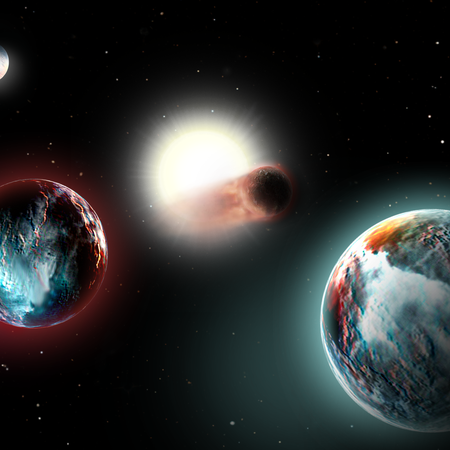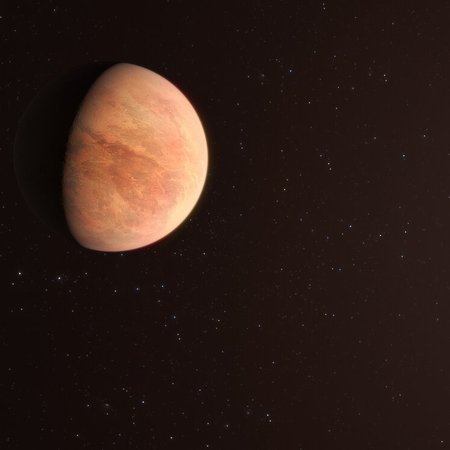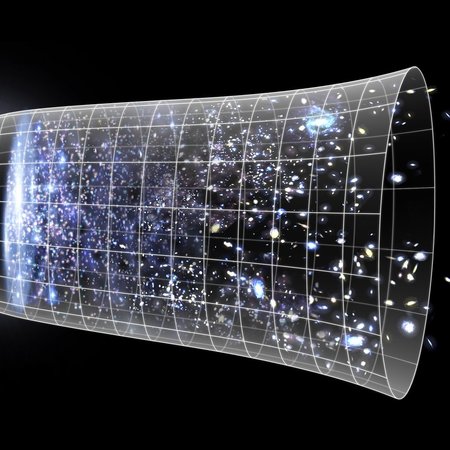Virtual lecture: Babelsberg Starry Night on 18th September 2025
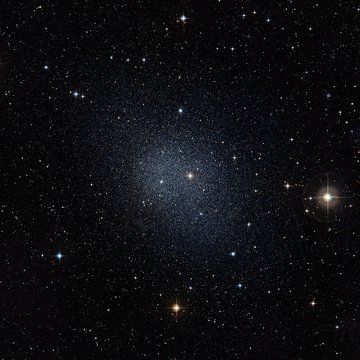
The Fornax dwarf galaxy, one of the satellite galaxies of the Milky Way.
Credit: ESO/Digitized Sky Survey 2At the next virtual Babelsberg Starry Night of the Leibniz Institute for Astrophysics Potsdam (AIP), Dr Marcel Pawlowski answers questions about his lectures on satellite galaxies and MOND – alternative theories of gravity. The video will be broadcast on the YouTube channel ‘Urknall, Weltall und das Leben’ (Big Bang, Universe and Life) from 18 September 2025.
The next lecture in the Babelsberg Starry Nights virtual series by Dr Marcel Pawlowski will be online on Thursday at 8 p.m. Marcel Pawlowski is head of a Leibniz Junior Research Group at the AIP and has already given two lectures on satellite galaxies, cosmological simulations, dark matter and MOND, an alternative theory of gravity. One of the central topics of current research is how galaxies challenge the dark matter model. How can observations of the small dwarf galaxies orbiting our Milky Way provide clues about the mysterious and invisible dark matter? What alternative theories do exist? Because this exciting topic raised new questions, the scientist answered the first questions in a video in May. The current video presents the second part with even more questions and answers.
Further videos:
- Talk: Rotationskurven, Dunkle Materie und MOND | Dr. Marcel Pawlowski
- Talk: Wie Galaxien das Modell der Dunklen Materie herausfordern | Dr. Marcel Pawlowski
- Comment check: Antworten zu den Fragen, Teil 1
Usually on the 3rd Thursday of each month, starting at 8 p.m., the lectures of the Babelsberg Starry Nights become available at
https://www.aip.de/babelsberger-sternennaechte
and via the YouTube channels "Urknall, Weltall und das Leben" (Big Bang, Universe and Life) and "videowissen" and can be viewed afterwards at any time.
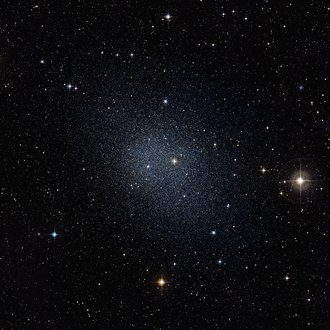
The Fornax dwarf galaxy, one of the satellite galaxies of the Milky Way.
Credit: ESO/Digitized Sky Survey 2At the next virtual Babelsberg Starry Night of the Leibniz Institute for Astrophysics Potsdam (AIP), Dr Marcel Pawlowski answers questions about his lectures on satellite galaxies and MOND – alternative theories of gravity. The video will be broadcast on the YouTube channel ‘Urknall, Weltall und das Leben’ (Big Bang, Universe and Life) from 18 September 2025.
The next lecture in the Babelsberg Starry Nights virtual series by Dr Marcel Pawlowski will be online on Thursday at 8 p.m. Marcel Pawlowski is head of a Leibniz Junior Research Group at the AIP and has already given two lectures on satellite galaxies, cosmological simulations, dark matter and MOND, an alternative theory of gravity. One of the central topics of current research is how galaxies challenge the dark matter model. How can observations of the small dwarf galaxies orbiting our Milky Way provide clues about the mysterious and invisible dark matter? What alternative theories do exist? Because this exciting topic raised new questions, the scientist answered the first questions in a video in May. The current video presents the second part with even more questions and answers.
Further videos:
- Talk: Rotationskurven, Dunkle Materie und MOND | Dr. Marcel Pawlowski
- Talk: Wie Galaxien das Modell der Dunklen Materie herausfordern | Dr. Marcel Pawlowski
- Comment check: Antworten zu den Fragen, Teil 1
Usually on the 3rd Thursday of each month, starting at 8 p.m., the lectures of the Babelsberg Starry Nights become available at
https://www.aip.de/babelsberger-sternennaechte
and via the YouTube channels "Urknall, Weltall und das Leben" (Big Bang, Universe and Life) and "videowissen" and can be viewed afterwards at any time.
